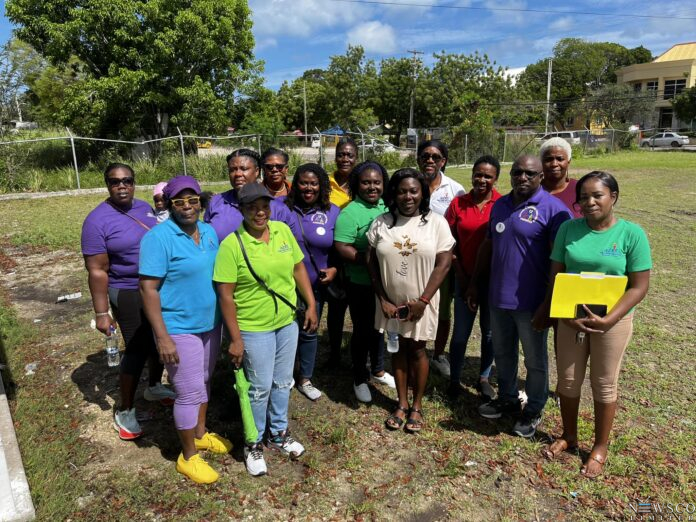
By Robert Andre Emmanuel
Encouraging parents, students, and members of the public to take the time out to recognise the efforts of teachers in going above and beyond the call of duty in the development of young Antiguans and Barbudans.
The Antigua and Barbuda Union of Teachers (A&BUT) held two media engagements on Observer media yesterday—the first on Observer AM with General Secretary Sharon Kelsick and 1st Vice President Robyn Joseph-Nathaniel.
They spoke about their Teachers Aspiration Day, focusing on how teachers see their personal future, the future of education and their union.
“What we’re trying to do is to just get us to be in a position where we are reflective about our profession, where we are, and where we want to be—both as a union and as a teacher, as a profession, as a sector.
“So, what we’re doing today is we’re going around to some of our schools, we’re going to be taking some short clips of teachers, just talking about where they want to see education going in the next year, what they want to see for themselves personally for their schools, for us as a union,” Kelsick explained.
The theme for this week of activities is “Teachers: Strong, Resolute, and Positioned for Change” reflects the role of teachers as more than just babysitters for people’s children but as the foundation for a strong society and that the change in any society starts within the classroom.
“On Friday, it’s Teacher Appreciation Day and we are asking everybody to really do something special for a teacher that you love, even if it’s just to say thank you … because this job can be very demanding, and sometimes it’s a thankless job, and so we just want to ensure that our teachers feel appreciated,” Kelsick added.
Meanwhile, Joseph-Nathaniel stressed the fact 1that the teachers cannot be appreciated enough.
“I don’t think that we could even begin to measure the worth of a teacher. If we look at our society, everybody had a teacher, and the role of education is civic competence. We are the ones that not only pass on scholastic information, but we teach the norms of society, we help our children with the help of the family and so forth to be better human beings, to be better citizens,” Joseph-Nathaniel expressed.
Today, the A&BUT will hold its annual general conference at the St John St Luce Financial Centre to review the past year and make collective decisions around the future policies of the union.
Meanwhile, on Saturday, the union will hold its annual banquet and honour ceremony where more than 30 teachers are expected to be honoured.
“We will be honouring 32 teachers this year, three of whom recently retired, and the others would have been in the service for 25 years, and so it’s just a way of telling them thank you for the contribution they have made to the service,” the General Secretary explained.
Meanwhile, with roughly 75 percent — three out of every four teachers being women, according to the most recently available data, the Antigua and Barbuda Union of Teachers is hoping to encourage more men to join the teaching profession.
Speaking on Tuesday with our newsroom, Joseph-Nathaniel stated that teaching should not be seen as a gender specific occupation as both men and women bring unique perspectives and styles to the job.
“I think that there’s a social conditioning that women are nurturers … but having men in education is important because we have males and if we understand that the goal of education is civic competence.
“We’re not preparing people just to write exams; we’re preparing people to function in society and then we should have role models for both agendas,” she said.
On the same day, the A&BUT held a panel discussion on ‘Men in Education’ led by Principal of the Antigua Grammar School, Samuel Roberts.
President of the Teacher’s Union Casroy Charles, Principal of Five Islands Primary Alden James, Education Consultant Craig Cole, and teachers from across the region joined the conversation.
At the forefront of the discussion was the importance of males in teaching roles, and why men are reluctant to become teachers, including the pay scale and lack of male role models in the field.
“You have to teach the child to appreciate your career, to appreciate teaching and when the child and other males see that you appreciate it, they will want to go and do it,” Cole said.
